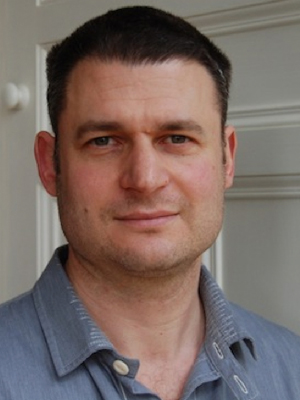Q&A with William Sutcliffe, author of the recent critically acclaimed novel, The Wall.
Q1/ How did you come to write The Wall and how does it differ from the work that you had done beforehand?
The Wall in the West Bank has troubled me for a long time, and for years I have been searching for a way to write about it. Then it struck me that one of the common tropes of children’s literature is the character who escapes from his or her mundane, ordinary world through some kind of portal into a parallel, fantastical universe. I began to think that religious fundamentalists, such as the religious nationalist settlers in the West Bank, raise their children with utterly fantastical beliefs. In telling the story of a settler child who crosses from one side of the wall to the other, I realised that I could invert this fictional trope, with a narrative about a child raised in a world of fantasy who discovers a portal to reality.
The goal from the start was to write a book, like Animal Farm, that would work for younger readers as a metaphorical narrative about justice and power set in a fictional universe, but for adult readers as political fiction about a real situation.
Tonally, this novel has something in common with my 4th novel, Bad Influence, which also dealt with a young person struggling to comprehend an extreme moral quandary, but in most ways this novel is very different from the books I have published before. It is far more serious, and more overtly political than anything I have attempted before. I don’t actually think there is anything “unserious” about humour, but the situation in the West Bank is not one that is remotely funny, so there was no scope for comedy in this novel. The way you write is dictated by the story as it unfolds in front of you. This is part of the joy of writing. You start with a simple idea, and it leads you into territory where you have to find a new mode of expression for yourself. Any book that doesn’t contain this journey of discovery probably isn’t worth writing.
Q2/ What kind of research did you do when writing the novel?
I took two separate research trips. The first one was as part of the Palestine Literary Festival, visiting all the main Palestinian towns in the West Bank and participating in events, talks and seminars with local writers. I later took a second trip, in which I stayed with three settler families in different settlements in the West Bank. The two itineraries overlapped but never intersected due to tunnels and segregated roads. The geography of the West Bank is like nowhere else. These trips weren’t particularly extended, but they were intense, and I had excellent guides with me who taught me an enormous amount.
Both trips were deeply troubling in very different ways, and taught me an enormous amount that I could never have learned from home-based research. However much you have read on the subject, seeing what a 46-year-long military occupation looks like is shocking and depressing.
I have moved a few things around through time and place, but I have gone out of my way to make the physical setting entirely accurate. The book may read like a fantasy dystopia, but in many ways, it is reportage.
3/ Has the novel had the kind of response that you expected it to have?
My biggest worry in writing this book was that people actually living under the occupation might think it was a betrayal of their suffering, or presented a dishonest picture of the place. The fact that the book has had enthusiastic responses from Palestinian writers such as Raja Shehadeh and Palestinian diaspora writers like Selma Dabbagh and Susan Abulhawa means an enormous amount to me.
I was expecting a more vitriolic response from the bloggers, journalists and internet-ranters who make a habit of attacking anyone who dares to criticise Israel, but so far these people have mostly ignored the book. I can’t say I’m looking forward to getting onto their radar, but most of the people in the UK who defend the occupation have never actually seen it, and their arguments are extremely thin, so I don’t see what they could say to undermine the book. Perhaps that’s why they are ignoring it.
